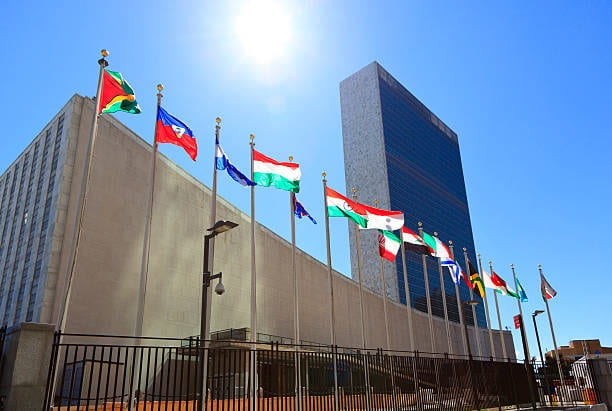The conflict in the Central African Republic (CAR) began in 2012 when Muslim rebels called Séléka overthrew the government and ousted the President, François Bozizé. A “self-defense” coalition later formed, the anti-Balaka, and the subsequent conflict between the two sides caused thousands of deaths, millions of internally displaced people, widespread food insecurity, and a humanitarian crisis.
In 2013, the African Union led boots to the Central African Republic in a support mission (MISCA) later joined by “Operation Sangaris,” French troops entering to assist in MISCA’s mandate. In 2014, control of the mission transitioned from the African Union to the United Nations and was reorganized as the Multidimensional Integrated Stabilization Mission in the Central African Republic (MINUSCA), to protect civilians from violence and provide aid to the vulnerable population.
The Operation was tainted by allegations of sexual exploitation and sexual abuse made by children against the Sangaris fighters.
From May to June 2014, six children detailed their allegations of abuse in interviews with authorities of MINUSCA, UNICEF, and the Human Rights and Justice Section (HRJS) of MINUSCA. Still, no parties investigated further, attempted to remove the children from the situation, nor sought to find more victims. A human rights officer sent her private notes detailing the allegations to 12 UN staff members including the Director of Field Operations at the Human Rights office Anders Kompass, staff in the Africa Branch of the United Nations High Commissioner for Human Rights, the Special Representative for the Secretary General on Children in Armed Conflict, and the head of MINUSCA. Only Kompass took action by leaking the “Sangaris Notes” to the French government, which was eventually published by Code Blue Campaign in 2016 and finally addressed to the general public.
Still, no peacekeepers were charged. There were multiple impediments to the United Nations’ own ability to investigate or prosecute. Firstly, the Monitoring and Reporting Mechanism (MRM), established in 2005 by UN Security Council Resolution 1612, established a mechanism to track human rights violations against children in conflict zones, which included a task force within the HRJS that would report on human rights violations committed by parties to armed conflict. The task force, however, did not include the Sangaris allegations in their report due to the fact that the HRJS officials were not confident the Sangaris troops were “parties to an armed conflict” and therefore could be properly reported through the MRM. This led to the delay in alerting the French government to the allegations.
Secondly, the Secretary General had policies to respond to sexual exploitation and abuse called the SEA policies. Among the SEA policies was a mandate for peacekeepers to alert the government of the Troop Contributing Country (TCC) of the allegations, cooperate with proper authorities, and assist the TCC with the investigation, including identifying and interviewing witnesses. However, the Sangaris forces were not under UN command, thus the SEA policies did not apply to them. A similar policy called the 2003 Bulletin on Protection from Sexual Exploitation and Abuse, or the “Zero Tolerance Policy”, prohibiting peacekeepers from engaging in sexual relationships with members of communities where they are stationed also did not apply because the Sangaris forces were not under UN command. Since the SEA policies, 2003 Bulletin, and the MRM failed to alert the proper authorities, they were only alerted after the allegations were leaked.
Thirdly, according to the Convention on the Privileges and Immunities of the United Nations, “experts…performing missions for the United Nations shall be accorded such privileges and immunities…from personal arrest or detention… and…immunity from legal process of every kind.” Since the Sangaris forces were arguably part of a UN mission, they “enjoy[ed] immunity from legal process in any other state, including the host state and transit states,” and thus many UN authority figures believed only the French government had jurisdiction to prosecute. French penal code states “soliciting, accepting or obtaining, in return for remuneration or promise of remuneration, sexual relations from a minor…is punishable by three years’ imprisonment and a fine of 45,000 euros”. However, after a criminal inquiry in France, no peacekeepers were charged with the Paris prosecutor’s office, citing a lack of evidence and inconsistencies in the allegations. The office stated “there’s a whole problem about identifying people…Are these accusations clear, accurate, detailed, repeated? And, based on these accusations, have we identified who might be the perpetrators?”
After the incident, Secretary-General of the United Nations Ban Ki-Moon created a “zero-tolerance policy” on sexual exploitation and sexual abuse in the United Nations, adopted by General Assembly Resolution A/71/L.59. Succeeding Secretary-General Antonio Guterres has also taken measures to increase accountability by TCCs, such as withholding funding from countries that have yet to conduct investigations, focusing on the victims, and stronger vetting for new peacekeepers. Still, similar allegations continue to arise from missions in Haiti, Somalia, and the Democratic Republic of the Congo to name a few, and by troops of all nationalities. In 2015, the UN created a database for allegations of sexual exploitation and abuse by UN Peacekeepers and a year later, a trust fund for victims of sexual exploitation and abuse was established. In March 2019, Secretary-General Guterres created the Civil Society Advisory Board on prevention of sexual exploitation and abuse and in December 2019, MINUSCA began a campaign of “Educational Talks” aimed at educating children about sexual exploitation and abuse in an attempt at prevention. The talks, which were set to run until June 2020, seem ongoing. The UN has yet to publish any research on the effectiveness of recent tactics they have employed. Regardless, the responsibility for prosecution primarily falls into the hands of the TCC. These measures may only be the UN’s way of exerting as much pressure to prosecute as they can on that nation.
Author Biography: Elise Levy is a moderator of the George Washington University International Law Society’s International Law and Policy Brief. She is a J.D. candidate at the George Washington University Law School and a graduate of the University of California, Los Angeles (UCLA).

